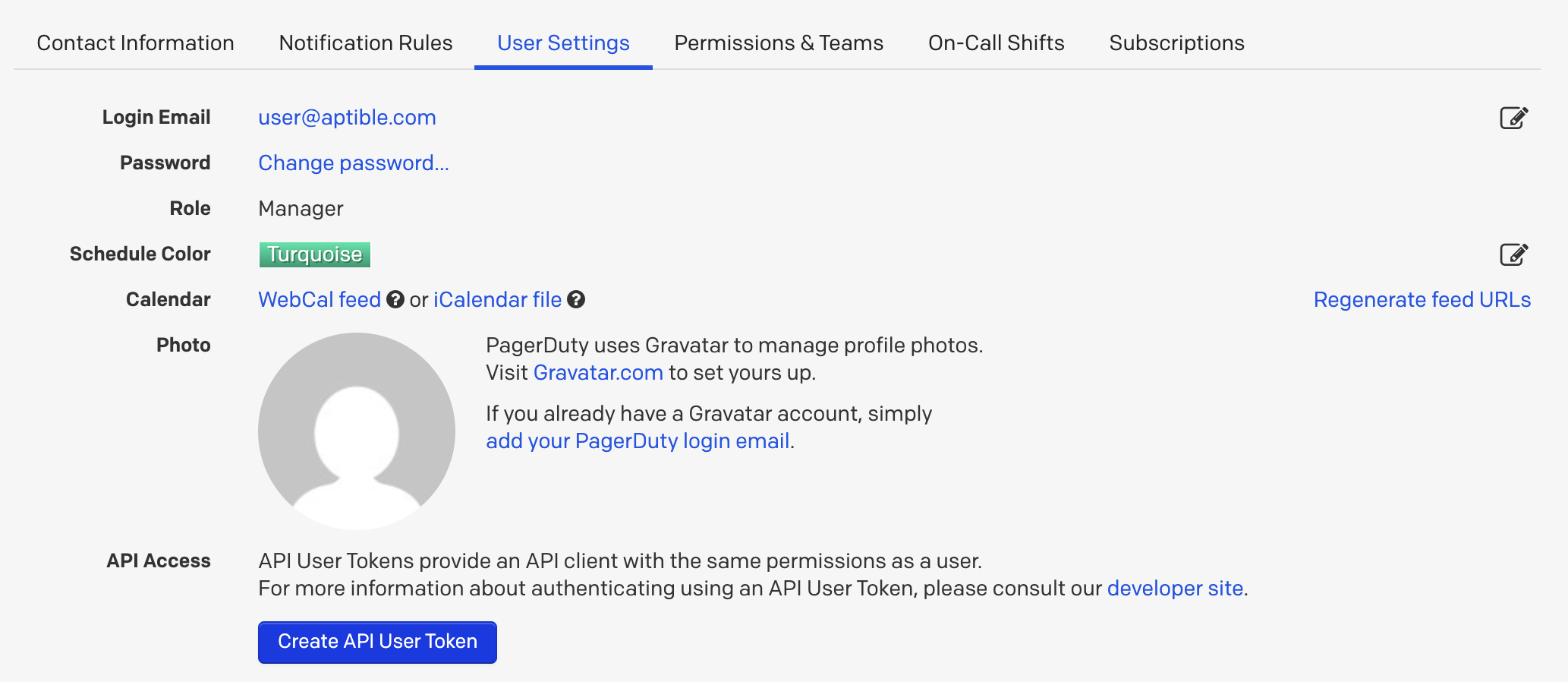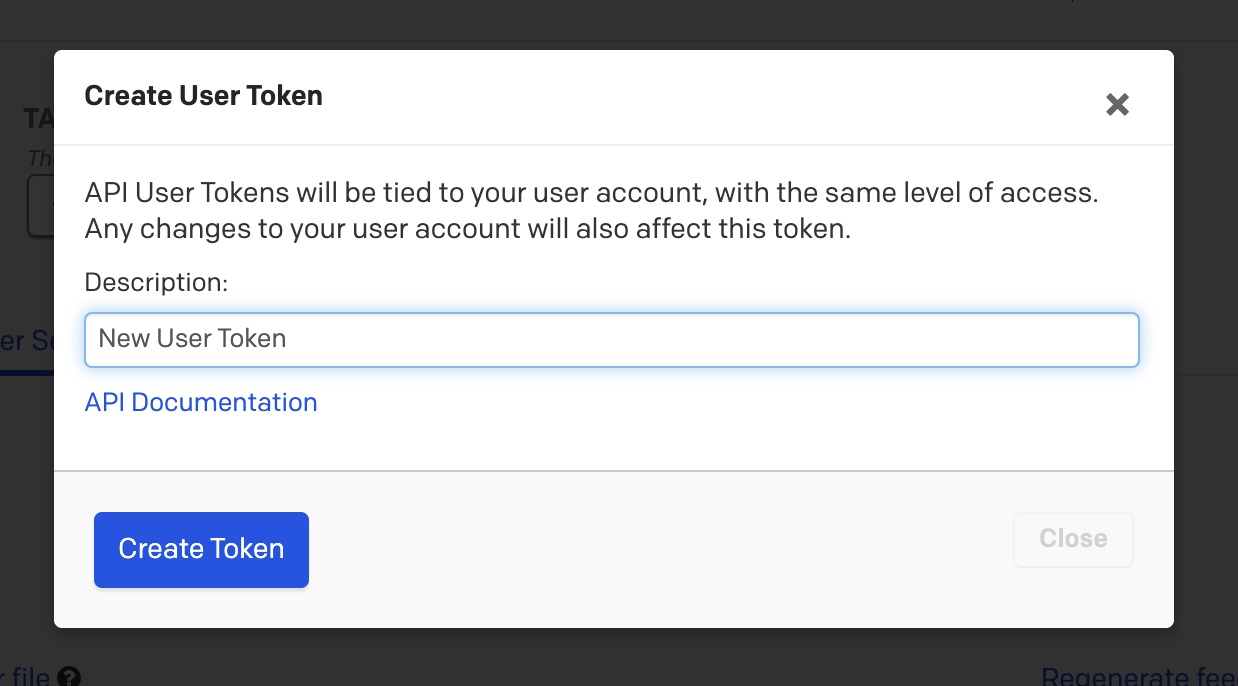MCP Tools
MCP Tools
- pagerduty_get_incident_details: Retrieve incident details by ID
- pagerduty_get_alert_details_for_incident: Get alert details for an incident
- pagerduty_post_status_update: Post a status update to an incident
- pagerduty_resolve_incident: Resolve an incident
Prerequisites
To configure the PagerDuty integration you’ll need to generate a PagerDuty API key.1
Open your PagerDuty 'User Settings' page
In the top right corner of the PagerDuty UI, hover over your profile image
and click on “My Profile”.Then open the “User Settings” tab:

2
Generate API Token
Click on “Create API User Token”:

Configuration
Configure the PagerDuty plugin by runninguv run unpage configure or by editing
the ~/.unpage/profiles/<profile_name>/config.yaml file:
Developing Agents
Your Agents can react to PagerDuty incidents by adding context from your Knowledge Graph, pulling Metrics, or running custom Shell Commands. Learn more about Creating Agents.Running Locally
You can test your Agents locally on past or current PagerDuty incidents by passing in a PagerDuty incident URL as the payload tounpage agent run:
stdout.
Webhooks
Agent workflows can run automatically by configuring PagerDuty to send webhooks to your Unpage Server.1
Open the PagerDuty Webhooks page
In the top navigation hover over “Integrations” and then click on
“Generic Webhooks (v3)”.
2
Add a New Webhook
Click on ”+ New Webhook”The Webhook URL should be the hostname of your running Unpage Server,
with a path of
/webhook (like https://unpage.yourdomain.com/webhook).During development you can tunnel to your local Unpage instance using ngrok by
running uv run unpage agent serve --tunnel (see Unpage Server
for details).The Event Subscriptions should be whatever events you want to run Agent
workflows on, for example incident.triggered.For production deployments with PagerDuty integration, see our Deployment Guide for complete setup instructions including Docker configuration and GitHub Actions CI/CD.
Tools
The PagerDuty plugin provides the following tools to Agents and MCP Clients:pagerduty_get_incident_details
Get a PagerDuty incident by ID, including all alert details.ArgumentsReturns
The ID of the PagerDuty incident. Typically a string of uppercase letters and
numbers. For example “PGR0VU2”, “PF9KMXH”, or “Q2K78SNJ5U1VE1”.
dict: The incident JSON payload, including all alert details.pagerduty_get_alert_details_for_incident
Get the details of the alert(s) for a PagerDuty incident.ArgumentsReturns
The ID of the PagerDuty incident. Typically a string of uppercase letters and
numbers. For example “PGR0VU2”, “PF9KMXH”, or “Q2K78SNJ5U1VE1”.
list[dict]: The list of alert details.
